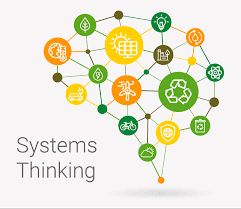Systems Thinking is the ability of understanding an organization as a whole instead of segmented parts. It entails understanding how different functions such as Finance, Human Resource and Marketing interact with each other in the day-to-day operations of the company. Systems Thinking allows one to identify patterns, allowing for smarter decision making when tackling a problem. Africa has a dynamic business environment which necessitates its organizations to embrace systems thinking when tackling challenges such as limited resources, rapid shifting of markets and regulatory uncertainty.
In Africa, many businesses unknowingly operate in inefficient systems because problems go unnoticed because they develop in isolated ways. An organization may need an integrated system if they keep having recurring problems despite having quick fixes. This means that the root of their problems stems from deeper system misalignments. Second, frequent miscommunication among teams which leads to missed deadlines, duplication of work and contradictory objectives. Third, businesses that tend to focus on short term solutions instead of building scalable and sustainable processes that will permanently solve their problems. For example, A factory that frequently hires temporary workers when there is a surge in orders instead of redesigning their system. This may seem economical until issues such as quality control arises leading them to get stuck in a loop.
Owners that want to integrate systems thinking into their organizations should start by visualizing the business as a whole. This can be done by drafting how key parts such as sales and marketing interact in the business. Second, when a problem arises the owners should identify the root cause of the problem which will enable them to identify suitable ways of solving the problem. Third, owners should look for recurring cycles which reinforce behavior. For instance, a retailer may introduce discounts to his products to boost his sales level. This may work in the short-run, however over time the regular customers will stop buying at full price and wait for the next discount window. This will lead to reduced revenues and shrinking margins. Organizations could implement regular check-ins that involve different departments in the organization to align objectives. For example, a company may introduce road-map meetings between their quality control department and customer support department to enable them to identify potential problems. Finally, when implementing a new policy, the manager should identify how the new policy will affect the rest of the company in general.
Systems thinking is a mindset shift that involves redesigning how organizations solve their problems. In Africa, businesses battling challenges such as volatile markets, this approach could be a game changer. By identifying patterns, managers can lead with clarity instead of confusion. The smartest businesses are the ones that understand how all their functions interact and work together.
















